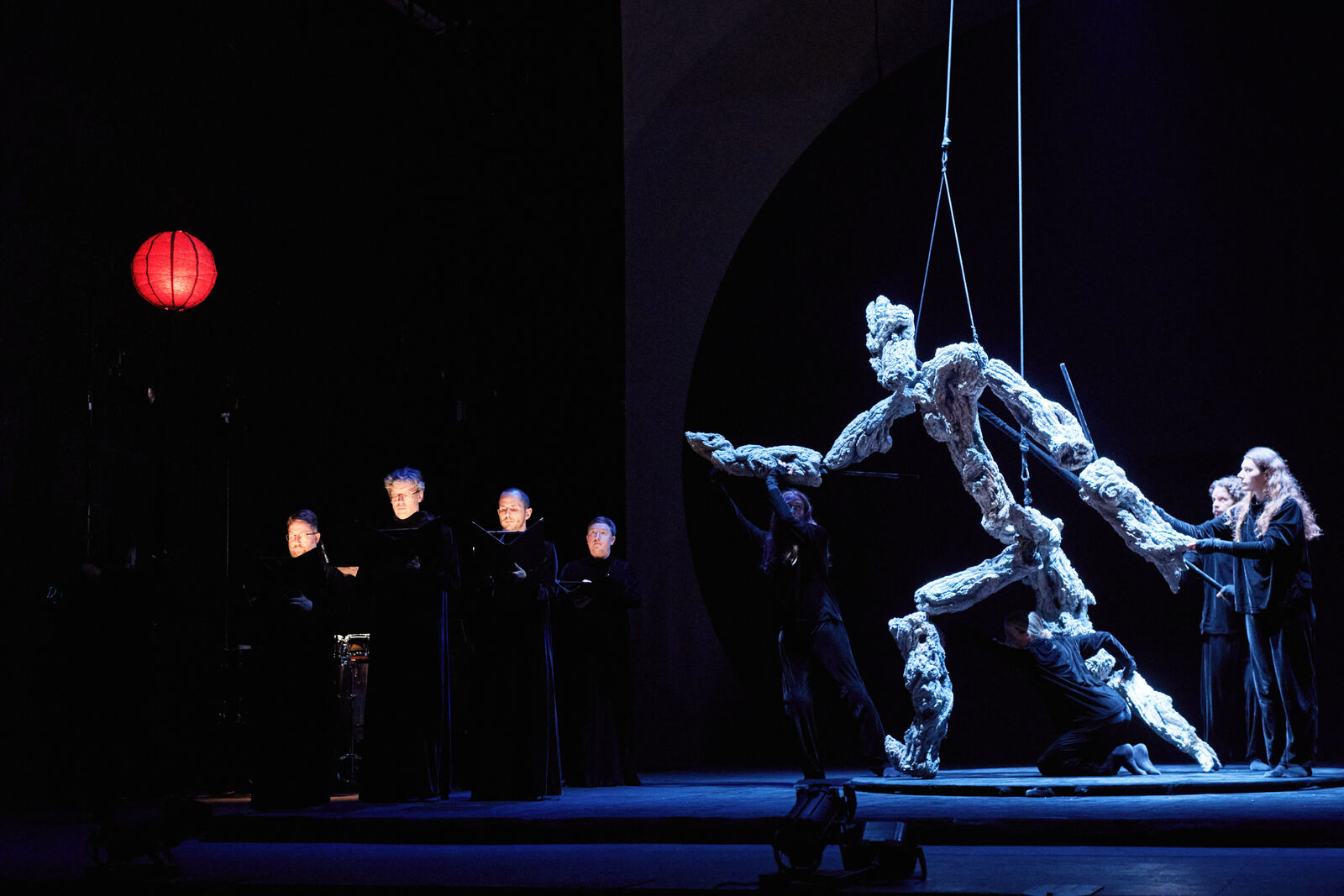Based on a collection of Chinese myths first transcribed in the 4th century B.C.E., Book of Mountain and Seas sees these creation tales adapted for modern times and issues through opera and puppetry. Written by acclaimed operatic composer, Huang Ruo, and performed by Ars Nova Copenhagen alongside an ensemble of percussionists and puppeteers, this is a powerful and mesmerising opera that highlights the timelessness of these stories and our relationship with the planet.
Sung in both Mandarin and a fictional language, with English and Chinese surtitles projected behind the performers, the piece is divided into four parts, each dedicated to a different story. We witness the creation of the world from body of the giant Pan Gu, the vengeance sought on the sea by the spirit bird Jing Wei, the taming of the sun by the divine archer, Hou Yi, after he slays its nine siblings, and the impossible chase by the giant Kua Fu to catch the sun, leaving a trail of destruction in his wake. While the surtitles offer little more than a simple overview of the stories, it isn’t hard to intuit what’s happening – especially if you’re already familiar with these stories.
Harmony is a recurrent element throughout Book of Mountains and Seas, and that’s especially true in the synergy between the performers. The singing is enchanting, even if we don’t know exactly what is being sung, and the percussionists complement them by adding further dramatic flair through rumbles and clashes. Likewise, the singers smartly position themselves on the stage at various points to obscure the assembly of a puppet, while the puppetry, directed by Olivier Award-winning designer Basil Twist, never threatens to outshine the singers thanks to its stripped back, yet effective, nature.
In one part, the puppeteers create an ocean using a sheet of fabric as the spirit bird Jing Wei circles and dives at it, causing patterns of light to shimmer across it in a hypnotic spectacle. In another, they deftly work in unison to convey Kua Fu’s fascination with the sun, his unending race across the land, and all-consuming thirst. It’s beautifully captivating and adds dividends to the performance.
While these stories may be ancient, there’s a reason they’ve endured and Ruo smartly ties them to contemporary issues around the climate emergency. Music and puppetry work seamlessly to create a sense of awe in the first two parts, while in the latter half the allegories of over-consumption and the threat humans pose to the natural order are all too clear. There’s a particular irony to the audience watching ten suns, conveyed by paper lanterns, slowly assemble on-stage and symbolically scorch the Earth as the audience swelters in the stuffy Lyceum theatre thanks to an UK’s fourth summer heatwave.
Book of Mountains and Seas is a wonderful feat of operatic theatre that raises pertinent questions, especially around the environmental challenges we face. In ending on a note of hope, it also offers a reminder that positive change is possible as well, we just need to seize it.


Comments